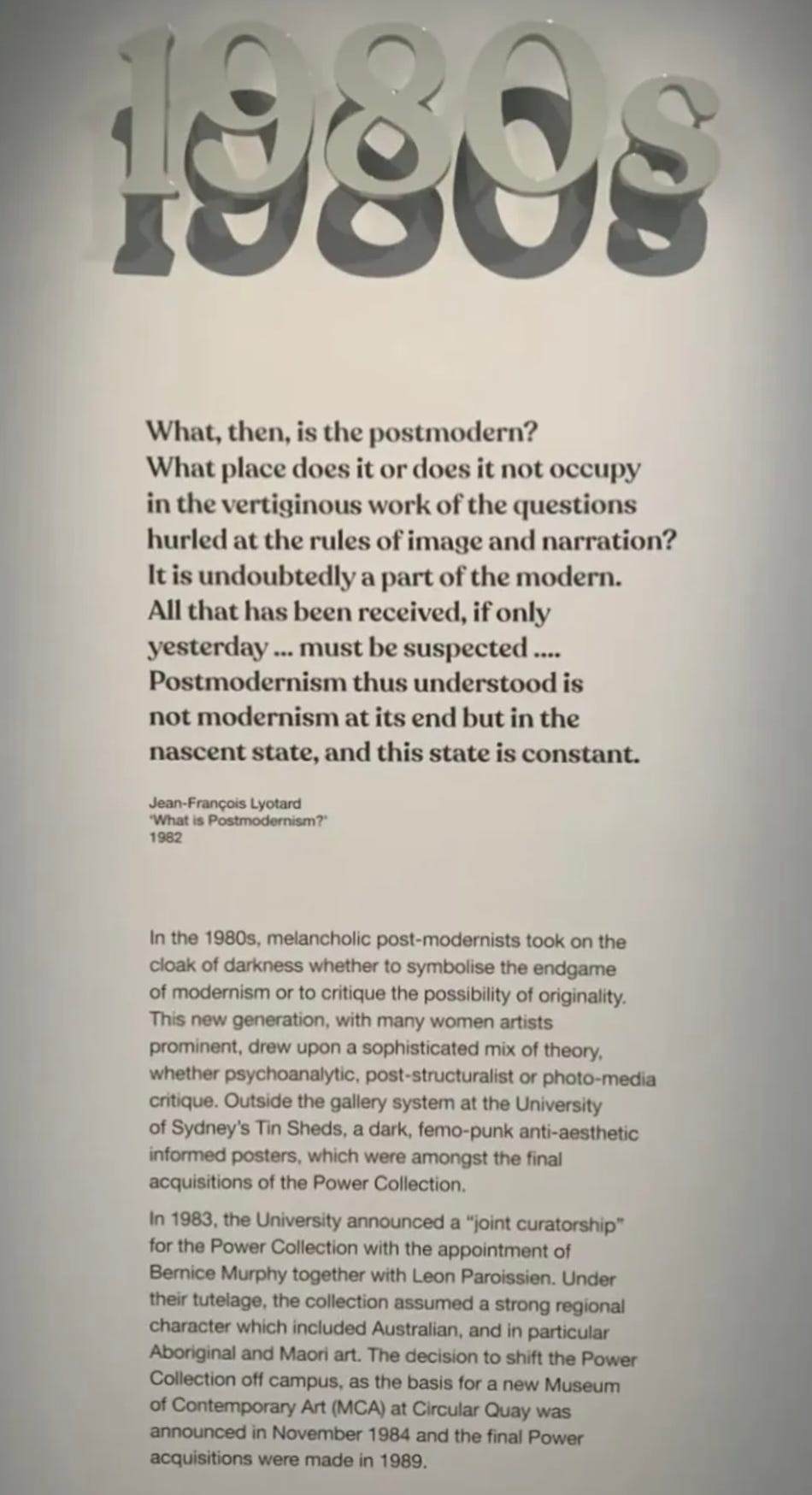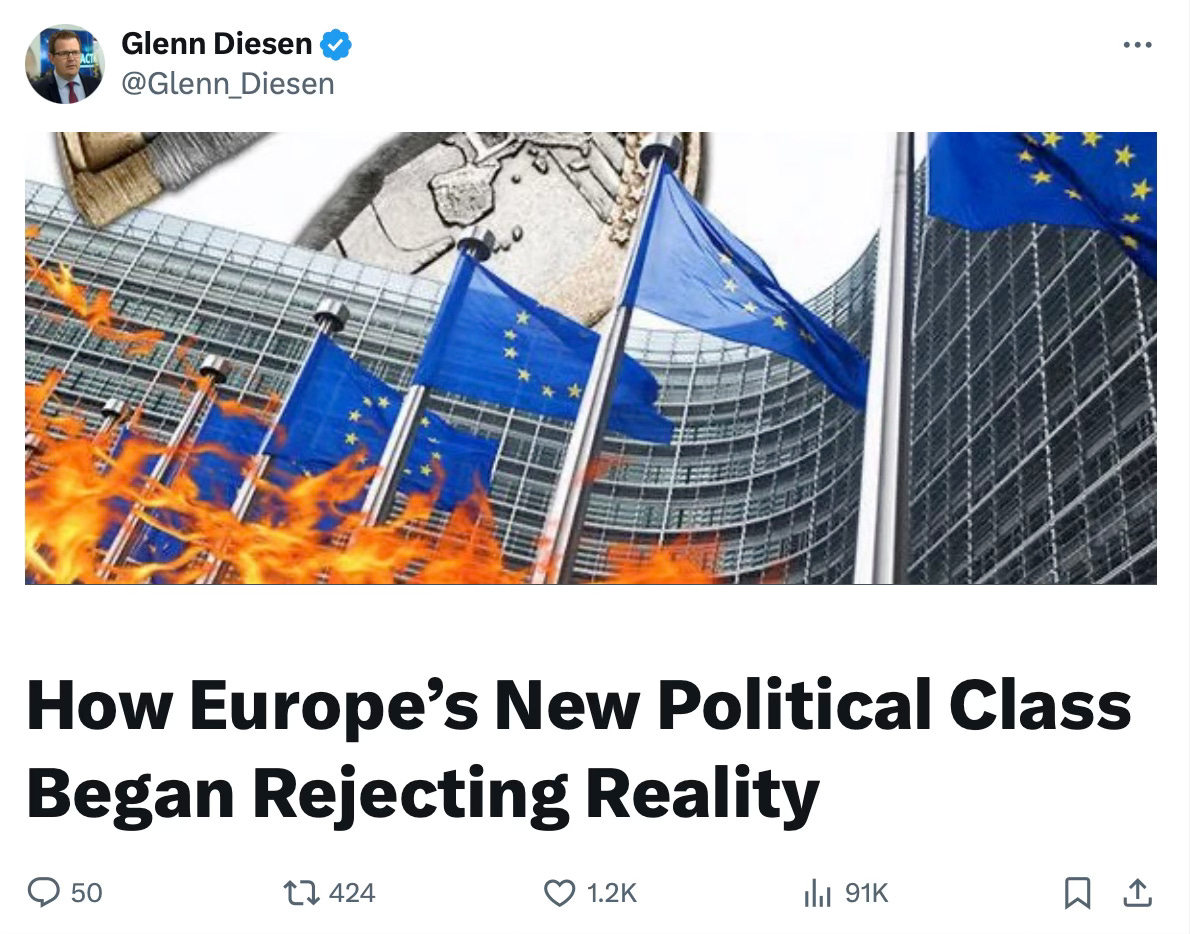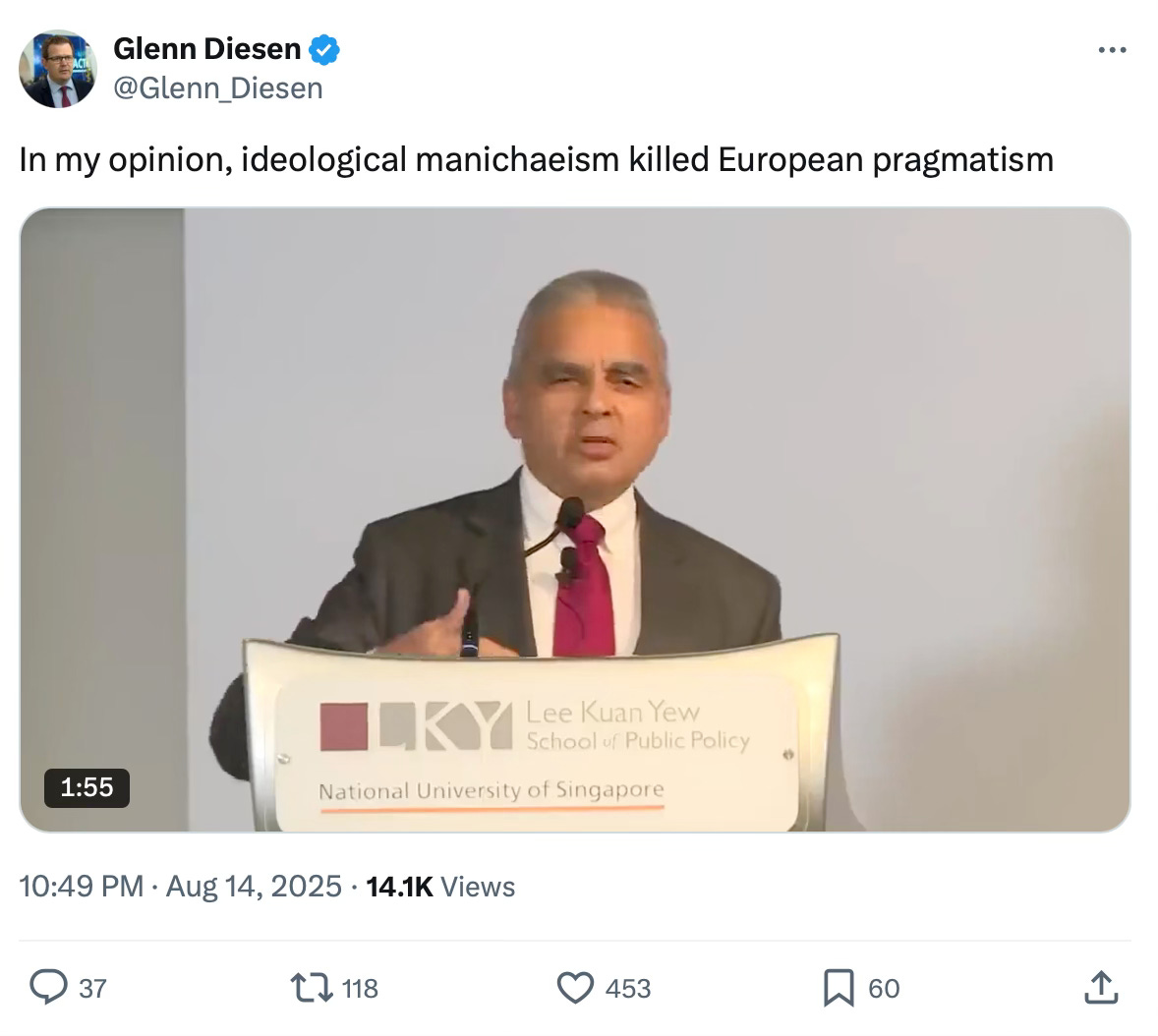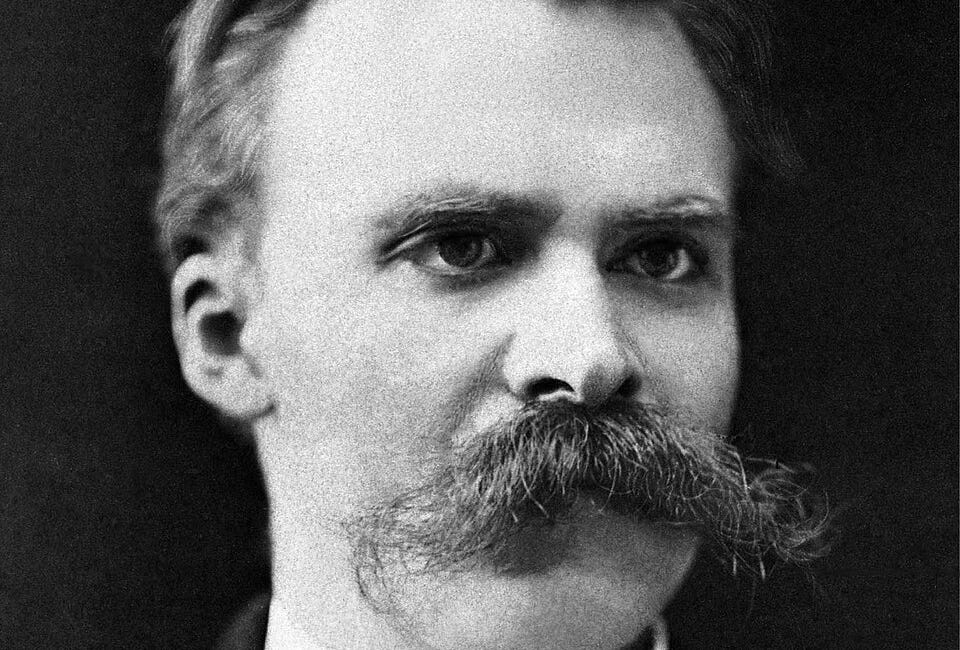Photo — Exhibition July 2022 Chau Chak Wing Museum
“The political class that emerged in Europe after the Cold War have become excessively ideological and committed to narratives to socially construct new realities.
The Europeans' embrace of postmodernism entails questioning the existence of objective reality as our understanding of reality is shaped by language, culture and unique historical perspectives.
Thepost-modernists,therefore often seek to changenarratives and language as a source of political power.If reality is a social construction, then the grand narratives can be more important than facts.
Indeed,ideological narratives must be defended from inconvenient facts”…
— Glenn Diesen[LINK]
“This is part of the wholePost-Modern problem is this idea that there is no Truth, there is only perspective, there is only power, and we don’t ever really have access to Reality.Reality is crafted by the powerful”…
— Jamie Roberts
[LINK] - Liberalism in the Shadows - Refer - ~3:20 minute mark
“The most striking difference between the ancient and modern sophists is thatthe ancients were satisfied with a passing victory of the argument at the expense of truth, whereasthe moderns want a more lasting victory at the expense of reality.In other words, one destroyed the dignity of human thought, whereasthe others destroy the dignity of human action. The old manipulators of logic were the concern of the philosopher, whereas themodern manipulators of facts stand in the way of the historian. For history itself is destroyed, and its comprehensibility — based upon the fact that it is enacted by men and therefore can be understood by men — is in danger whenever facts are no longer held to be part and parcel of the past and present world, and are misused to prove this or that opinion”…
― Hannah Arendt, The Origins of Totalitarianism
Also refer - New Totalitarianism [LINK] - and - Del Noce: New Totalitariam [LINK]
Post-Modernism
a late 20th-century movement in philosophy and literary theory that questions the basic assumptions of Western Philosophy
the movement is characterised by broad scepticism towards universal truths, objective reality (i.e. instead, an alternative orientation towards subjectivism, or relativism); a general suspicion of reason and grand narratives; and an acute sensitivity to the role of ideology in asserting and maintaining political & economic power
Liberalism
a political doctrine that takes protecting and enhancing the freedom of the individual to be the central problem of politics
“This repudiation of the European heritage is not new. You can sense its beginning in the Enlightenment. It was a major force among the Young Hegelians, Marx especially, and has repeatedly come to the surface in the Wars and Contests of the Twentieth Century”…
— Roger Scruton
“Postmodernity is said to be a culture of fragmentary sensations, eclectic nostalgia, disposable simulacra, and promiscuous superficiality, in which the traditionally valued qualities of depth,
coherence, meaning, originality, and authenticity are evacuated or dissolved amid the random swirl of empty signals”…
— Jean Baudrillard
[LINK] - Liberalism in the Shadows - Refer - ~3:20 minute mark
“Strange times are these in which we live when old and young are taught falsehoods.And the one man that dares to tell the Truth, is called at once a lunatic and fool”…
— Plato
[LINK]
“Postmodernismrejects truth and common sense”…
— Robert Curry
Refer - What happened to Harvard? [LINK]
[LINK]
“Without any censorship in the West, fashionable trends of thought and ideas are fastidiously separated from those that are not fashionable, and the latter, without ever being forbidden, have little chance of finding their way into periodicals or books or being heard in colleges.Your scholars are
free in the legal sense, but they arehemmed in by the idols of the prevailing fad.There is no open violence, as in the East; however, a selection dictated by fashion andthe need to accommodate mass standards frequently prevents the most independent-minded persons from contributing to public life and gives rise to dangerous herd instincts that block successful development.
In America, I have received letters from highly intelligent persons—maybe a teacher in a faraway small college who could do much for the renewal and salvation of his country, but the country cannot hear him because the media will not provide him with a forum.This gives birth to strong mass prejudices, to a blindness which is perilous in our dynamic era.
An example isthe self-deluding interpretation of the state of affairs in the contemporary world that functions as a sort of a petrified armor around people’s minds, to such a degree that human voices from seventeen countries of Eastern Europe and Eastern Asia cannot pierce it. It will be broken only by the inexorable crowbar of events”…
— Aleksandr Solzhenitsyn
Refer - A World Split Apart - Aleksandr Solzhenitsyn 1978 Harvard Address [LINK]
Refer - A World Split Apart - Aleksandr Solzhenitsyn 1978 Harvard Address [LINK]
“The philosophy of Eric Voegelin offers insight into the causes of the twentieth-century nightmare, causes, he suggests, bound up with the very nature of “modernity” itself.
According to Voegelin, the great modern ideological movements—communism,fascism,national socialism— are neither random and inexplicable outbursts nor solely the products of particular material and historical conditions.They
should be understood instead as the extreme manifestations of a form of spiritual disorder or psychic disorientation that springs from certain tensions inherent in human existence.
For Voegelin,the crisis of modernityis inessence a spiritual crisis rooted in adeformation of the truth of reality”…
— Linda Raeder
[LINK] - Voegelin on Gnosticism, Modernity, and the Balance of Consciousness
“Now subjectivism reduces all science to the knowledge of one individual, the Ego — which, as just shown, is no science at all.If its fundamental definition of knowledge means anything, or is faithfully adhered to, subjectivism teaches that the intelligent subject has no intelligence save for itself — has no warrant for believing in the existence of anything save itself — knows nothing but the inexplicable order of its own sensations and thoughts.It reduces all existence to an unrelated One, while of an unrelated One no science is possible. In a word, subjectivism if logical, annihilates science at a blow”…
— Francis Ellingwood Abbot
Also refer - The Conscious Self (Ego) [LINK]
[LINK] - The Calamity of Scientific Gnosticism








